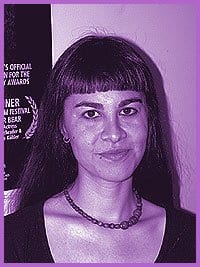Thousands of Chinese people descended on Parliament Hill recently to protest same-sex marriage. Next to the religious right, ethnic minorities are the most opposed to the advent of this legislation.
In the case of the busloads of Chinese people that arrived in Ottawa, religious rhetoric is being used to bolster their opposition to same-sex marriage, and in some cases, homosexuality in general. Yet more than religion, Chinese cultural doctrine is what brought these people to Ottawa.
In the Chinese social system, heterosexual marriage cannot be avoided. For over 2,000 years, Confucianism has been the cornerstone of order in East Asian society. More a set of rules than anything else, Confucianism is the model of conformity. The rules are patriarchal. Women are beholden to their male family members. Marriage is compulsory. Ancestor worship is essential to the mortal life of an individual. Identity is achieved through family membership. One is forced to rely on collectivity in critical decision-making.
Up until recently, sex was a taboo subject for Chinese people. The de-sexualization of Chinese citizens was encouraged by communist ideology. Oral sex between man and wife is still considered a crime in Singapore. That’s changing though. There’s been a virtual revolution in much of East Asian society with increasing tolerance of premarital sex and extra-marital affairs in China. Establishments have sprung up all over Korea where heterosexual lovers can enjoy each other for an hour or two in a rented room.
Yet ask a person in China about homosexuality in their own country, and they will tell you that it’s impossible and unimaginable. Most people will go as far to say that they despise it. Rather than it being another aspect of Western behaviour that’s emerging with economic reforms, people in East Asia insist that homosexuality is a Western phenomenon.
During the time I lived in Korea, there was a rumour in the tabloids that Keanu Reeves was gay. My Korean students were livid. Many of them had idolized him, granting him elevated status given his Asian background. With the possibility of his homosexuality, some wanted him ostracized from Hollywood, while others thought he should be executed.
Despite the widespread attitudes of its people, China has a vast literary production on male homosexuality. Entire chapters were dedicated to homosexuality with the rise of the novel and short fiction beginning in medieval times. In the last dynasty, males and females were competing equally as prostitutes.
Although China would deny their existence, homosexual people form an integral part of its society as they do in every country. Coming out in such a tightly controlled system is difficult enough, but it is made doubly hard because today’s lesbians and gays lack the very words to describe themselves. On the one hand, you may understand who you are, but on the other, you will not be able to name it. The word lesbian does not exist in Chinese.
Without words to identify themselves, China’s gays and lesbians seek out spaces in which they can be themselves instead. Life begins in the evening when they frequent gay bars and restaurants in Beijing or Shanghai, and also in medium-sized centres across the country. Gay life in China is more about place rather than self.
Chinese lesbians and gays do not openly come out in their day-to-day lives. It is pointless for them to show their sexual orientation when doing so may result in losing their jobs and being ostracized from their families.
Many of the Chinese people who protested on Parliament Hill may believe that homosexuality does not exist in China and other parts of Asia. On the surface at least, they appear to be right. Homosexuality is not reflected in contemporary East Asian culture – at least not openly. Gays and lesbians live in the shadows where there is a distinct separation between their sexual identity and their sexual behaviour. Private sexual relations are one thing, but coming out is an entirely different proposition. As soon as two responsible adults want to live together, their situation becomes unacceptable. The result is that many lesbians and gays continue to live underground, often in isolation, leading a double life.
Ethnic minorities in Canada may insist that homosexuality is not condoned by their culture, nor does it exist, but this is a misinformed opinion. In the Confucian countries of China, Japan, Korea and Vietnam, lesbians and gays are living their lives whether busloads of Chinese people protest same-sex marriage on Parliament Hill or not.

 Why you can trust Xtra
Why you can trust Xtra


